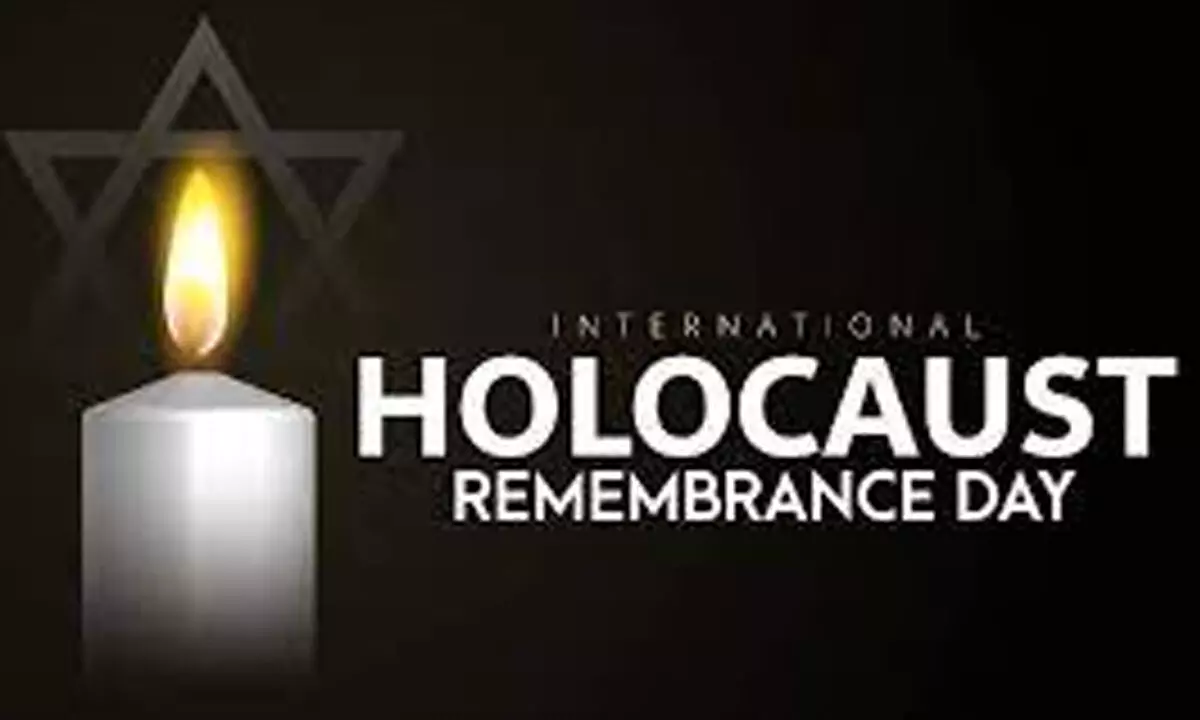Live
- Sickening vote-bank politics by all parties
- The Art to Master Balancing Work and Parenting
- Govt allocates `113.23 cr for junior colleges
- Top 2025 Motorcycle Launches: Upcoming Bikes to Watch Out For
- State govt to promote use of drones in agri sector
- Speciality hospitals demand payment of dues
- Hyderabad’s Bijli Sudha Shines at Forever Business Awards 2024
- Kareena Kapoor Khan Bids Adieu to Swiss alps
- Bookshelf
- Melding Classical Music with Therapy and Spiritual Growth
Just In
What is the International Holocaust Remembrance Day Here’s all you need to know


On January 27th each year, the world comes together to honour the victims of the Holocaust, a dark chapter in human history marked by immense tragedy and loss. Since 1996, Germany has solemnly observed this day, while Israel has its own designated Remembrance Day, known as Yom HaShoah, typically observed in April.
On January 27th each year, the world comes together to honour the victims of the Holocaust, a dark chapter in human history marked by immense tragedy and loss. Since 1996, Germany has solemnly observed this day, while Israel has its own designated Remembrance Day, known as Yom HaShoah, typically observed in April. In November 2005, the United Nations General Assembly unanimously declared January 27th as the "International Day of Commemoration in memory of the victims of the Holocaust," as outlined in Resolution 60/7.
Significance of January 27th:
January 27th holds particular significance as it marks the liberation of the Auschwitz-Birkenau concentration and extermination camp by the Soviet Union's Red Army in 1945. This pivotal moment not only symbolized the end of the atrocities committed within the camp but also shed light on the horrifying extent of the Holocaust's devastation.
Reflecting on the Holocaust:
The Holocaust, orchestrated by Nazi Germany, resulted in the systematic persecution and murder of millions of individuals, including approximately six million Jews and countless others deemed undesirable by the regime. Among the targeted groups were Sinti and Roma, disabled individuals, political dissidents, homosexuals, and more. Resolution 60/7 reaffirms the critical importance of remembering the Holocaust as a stark reminder of the perils of hatred, bigotry, racism, and prejudice.
Global Efforts Against Denial and For Education:
The UN resolution unequivocally condemns Holocaust denial and underscores the necessity of educational initiatives and remembrance programs to prevent future genocides. In Israel, Yom HaShoah is marked by solemn ceremonies, including a nationwide moment of silence and a poignant memorial march from Auschwitz to Auschwitz-Birkenau.
German Remembrance:
As the nation responsible for perpetrating the Holocaust, Germany observes January 27th as a day of solemn remembrance. Since 1996, the Bundestag, Germany's federal parliament, has convened annual memorial sessions where Holocaust survivors, descendants, and leaders from across the globe share their experiences and advocate for continued vigilance against future atrocities.
Inter-generational Remembrance:
The upcoming 2024 Bundestag ceremony will focus on inter-generational remembrance, featuring speakers such as Eva Szepesi, a Holocaust survivor, and Marcel Reif, representing the younger generation. These commemorations serve as poignant reminders of the lives lost during the Holocaust and underscore the collective commitment to ensuring that such atrocities are never forgotten or repeated.

© 2024 Hyderabad Media House Limited/The Hans India. All rights reserved. Powered by hocalwire.com






